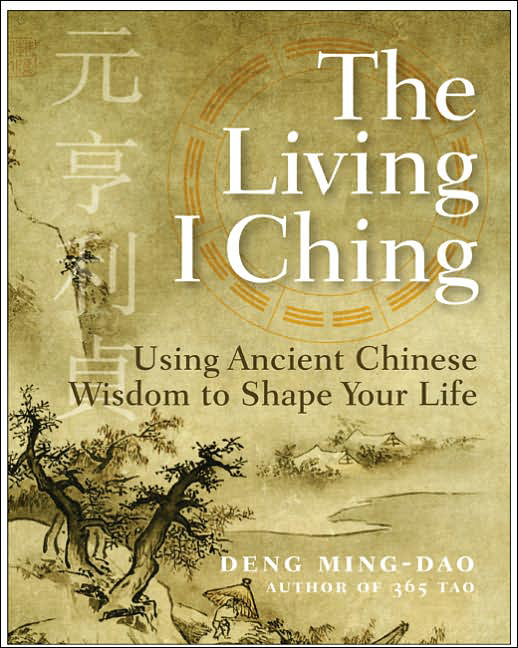About the Book
The Living I Ching: Using Ancient Chinese Wisdom to Shape Your Life
Paperback: 448 pages
Publisher: HarperOne, 2006
ISBN-10: 0060850027
ISBN-13: 978-0060850029
This site is based on this translation by Deng Ming-Dao.
The I Ching, or Book of Changes, is an ancient manual for divining the future. Its basic text is traditionally attributed to three sages: King Wen, the Duke of Zhou, and Confucius. By tossing coins, rolling dice, using a computer, or, more traditionally, counting yarrow stalks, one can create a seemingly random combination of heads or tails, odd or even, yin or yang, to construct six lines (for example, solid for odd numbers or broken for even numbers). These six lines make up a hexagram that provides advice, predictions, and answers to questions on topics from love and career to family and finance.
The classic dates to the Zhou dynasty (1122-256 bce). Archetypal observations of the human dilemma were recorded that long ago, and they became part of the Chinese and Daoist outlook. While there have been many variations in the ensuing centuries, the core observations of rise and fall, fortune and misfortune, and life and death remain valid. They are worthy of study because each of us living today is limited by our age and our uncertainty of the future. Studying books like the I Ching reveals the patterns of history and give us the chance to live with greater insight.
While known mostly as a tool of divination, the I Ching is truly a repository of centuries of wisdom. Most of the existing translations offer either dense, scholarly commentary or little more than fortune-cookie platitudes, but The Living I Ching takes a more holistic approach. This translation recovers the true wisdom and philosophy of this ancient classic, so that the I Ching becomes more than just a book of fortune telling -it becomes a manual for living.
The Living I Ching: Using Ancient Chinese Wisdom to Shape Your Life












